#portuguese revolution
Explore tagged Tumblr posts
Text


From the documentary A Conspiração (The Conspiracy), 2024
The documentary portrays the conspiracy process that led to the Portuguese revolution of 25th of April in 1974. The "carnation revolution", that overthrew the fascist dictatorship, started with a coup d'etat organized by low rank, leftist army officials who aimed to restore freedom and democracy in Portugal and end the colonial war.
#films#documentary#portuguese#history#portugal#antónio pedro vasconcelos#25 abril 1974#25 abril#25 de abril#1974#quotes#revolution#carnation revolution#portuguese revolution#revolução dos cravos
12 notes
·
View notes
Text
Reposting this because today (April 25th) is the 50th anniversary of the Portuguese Revolution.
The revolution itself is an amazing story. And the speed with which the country went from a fascism lite dictatorship to a liberal democracy strikes me as breathtaking.
But the 1974 revolution also deserves attention for the effect it had on the downfall of white minority régimes in Southern Africa.
Portugal was the last European country with gigantic colonial holdings in Africa. The colonial wars pursued by the pre-democratic government put a major strain on the country and had been one of the factors which led to the revolution.
Decolonialization was a priority of the new MFA government in Lisbon. By the end of 1975, all of the former Portuguese colonies in Africa had become independent.
This was a problem for the white minority governments in Rhodesia (now Zimbabwe) and South Africa. The old Portuguese dictatorship had been friendly with them. But newly independent Mozambique made up half of Rhodesia's border and a good portion of South Africa's. And the former colony Angola made up most of the northern border of South West Africa (now Namibia) which had been illegally held by South Africa.
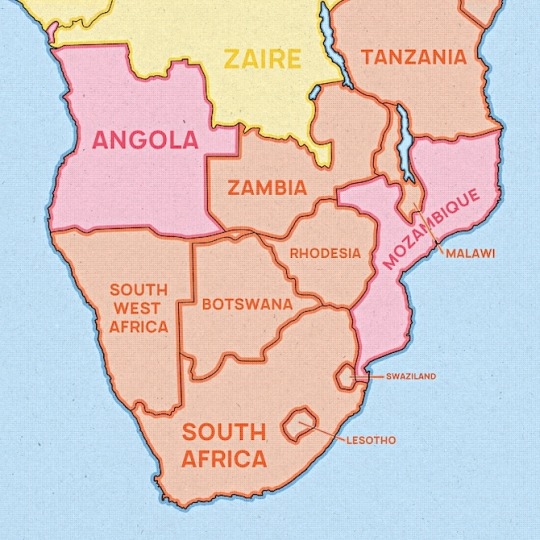
Despite concerted attempts at destabilization of Angola and Mozambique by South Africa's apartheid government, revolutionary sentiment and occasionally arms seeped South Africa and Rhodesia from their new neighbors.
By 1980, Rhodesia was on the road to full black majority rule. By 1989, the new pragmatic President F.W. de Klerk of South Africa announced a series of measures which led to black majority rule under Nelson Mandela in 1994.
There's a clear (if slightly circuitous) connection between the decolonization of Angola and Mozambique and the liberation of South Africa. It's another example of how historical events don't happen in a vacuum.
What happened in Portugal in 1974 needs to happen in Russia.
Today, April 25th, is the 48th anniversary of the 1974 Portuguese Revolution. A group of junior and middle ranking officers in the Portuguese military overthrew a fascist dictatorship which had been in power over 40 years.
The Estado Novo régime came to power in the same era as Mussolini, Hitler, and Franco. However it had been less heavy handed than those other dictatorships; its first and longest lasting leader, António Salazar, was a fervent Catholic who was turned off by the “paganism” of his fellow pre-war dictators and ruled accordingly. Still there were secret police, limits on free speech and the press, and no genuinely fair elections.
By the mid 1970s, Portugal was the last European country to have a colonial empire. A non-stop series of wars in the colonies had taken a large toll on the country. Younger and more clear-thinking officers decided that a change in the country was long overdue.
BBC History Extra describes what happened.
In March 1974, General António de Spínola was dismissed from his position as deputy minister of the armed forces.
He had written a book in which he suggested that the Portuguese colonial wars should come to an end. He was critical of the current Portuguese regime, something that was regarded as heretical by Portugal’s right-wing establishment.
The Armed Forces Movement (MFA) was soon formed by dissident and low- ranking officers who supported Spínola. Captains within the armed forces were also unhappy with a law which would grant privileges to conscripted officers, to the resentment of professionally trained officers. The armed forces’ support for the government was rapidly deteriorating.
Just before midnight on 24 April, Portugal’s entry for the Eurovision Song Contest – ‘E Depois do Adeus’ (And After The Farewell) – was played by the radio station Emissores Associados de Lisboa, as had been arranged by the rebels. This was the first of two secret signals that the army was waiting for.
Tanks entered the centre of Lisbon in the early hours of 25 April and soon the airport, television and radio centres were taken over, as well as the Salazar Bridge over the river Tagus. Prime Minister Marcello Caetano, along with other ministers, had taken refuge in the Carmo barracks, which housed the National Republican Guard, and these were stormed by troops, armed with machine guns. With little resistance, Caetano surrendered to Spínola.
[ … ]
Radio appeals by the revolutionaries asked people to stay inside, but many flooded the streets and joined in, supporting the troops. By the time the sun had risen on 26 April, the MFA was in charge and promised to hold democratic elections for a national assembly as soon as they could.
In 2014 for the 40th anniversary, NBC News did a piece on it.
Portugal Honors April 25 Revolution, the World’s Coolest Coup
They took less than 24 hours to bring down Europe’s longest-lived dictatorship and signal the end of the last colonial empire in Africa.
“It was a coup like no other,” recalled Swiss journalist Werner Herzog, who reported on the revolution.
“The atmosphere was more like a party,” he joked at a conference on Wednesday. “None of us had ever heard of an army intervening to bring democracy, surely it’s normally the other way round.”
It certainly did turn out to be cool. By June of 1976 Portugal had drafted a constitution, elected a parliament, and installed a president – all peacefully and democratically. In just 26 months, Portugal had gone from a fascist dictatorship to a fully functioning Western liberal democracy. And it’s still doing fine today.
Portugal is one of the most stable and resilient truly democratic countries on the planet. It’s amazing what a success story it has been. It is proof that a difficult history doesn’t have to be a drag on a country’s present and future.
As for Russia, we can only hope that there are middle ranking officers currently plotting to remove their own fascist régime. They do have a much more difficult job than their Portuguese counterparts in 1974. The Estado Novo régime was fascism lite while Putin is a lot more like the hardcore Nazis of the late 1930s in Germany.
Anyway, the BBC excerpt above alluded to “the first of two secret signals” which were played on Lisbon radio stations to give the go-ahead for the revolution. The second was more important and is now a revered patriotic song in Portugal. Grândola, Vila Morena had been banned on radio by the government. So when it was played just after midnight on Rádio Renascença on April 25th, everyone involved knew there was no turning back.
youtube
#portugal#portuguese revolution#25 de abril#revolução dos cravos#decolonization#south africa#apartheid#zimbabwe#angola#mozambique#liberation#freedom#a luta continua#historical connections
21 notes
·
View notes
Text

50 ANOS 🌹🇵🇹 25 de Abril Sempre 💕 O povo unido jamais será vencido!
For those who don't know, the 25th of April is the date of the Carnation Revolution, in which the Portuguese people came together to overthrow the oppressive f𝗮scist government. This year marks the 50-year anniversary of that achievement! Here's to 50 more years of freedom!
#self portrait#oc#my oc#my art#artists on tumblr#digital art#オリキャライラスト#25 de abril#portugal#portuguese#carnation revolution#grândola vila morena#zeca afonso#josé afonso
244 notes
·
View notes
Text

Não me obriguem a vir para a rua gritar ✊
Illustration done to celebrate the 50 years of the portuguese revolution of 25 April
/ ig: dieannne
#artists on tumblr#female artists#my art#illustration#female artists on tumblr#25 abril#25 de abril#25 abril sempre#carnation revolution#revolução dos cravos#revolution#portugal#portuguese#history#women who draw#women of illustration#digital illustrators#digital art#digital drawing#art#illustrator
30 notes
·
View notes
Text

#artists on tumblr#digital art#my art#art#illustration#doodle#digital painting#original character#oc#portugal#portuguese#carnation revolution#português#revolução#25 de abril
41 notes
·
View notes
Text

#Portugal#daily affirmation#25 de abril sempre!#fascismo nunca mais!#revolução dos cravos#carnation revolution#portuguese history
50 notes
·
View notes
Text


The Iberian Anarchist Federation (FAI) is a federal group. That is, it is free, based on equality and solidarity between the affinity groups of which it is made. Its purpose is to provide an effective coordination between the different anarchist groups of Spain and Portugal, so that it is possible to organise a social revolution which, abolishing private property and waged labour, can establish a new society based on anarchist communism. It strives for an order without imposition, without government, without authority of any kind and without exploitation. An order based upon the freedom of every human being, based on social equality, on free agreement, on mutual aid and on solidarity.
It is a coherent organisation, and therefore it is internationalist. FAI understands that a social revolution in Spain and Portugal must be part of an anarchist global revolution. Opposing every kind of nationalism, colonialism or imperialism, FAI, which is a member of IFA since its foundation supports a practical solidarity between the exploited classes, the poor and governed of the whole world, as part of a revolutionary struggle striving for the destruction of capitalism and the abolition of national borders. Its broader aim is a free federation of the different communities, peoples and regions of the world.
FAI fights the state in all its shapes (monarchy, republic, representative or popular democracy, dictatorships of any kinds..). For the federation only the disappearance of the oppressors by the action of the oppressed, and of the state by those governed, will bring about the liberation of the human kind.
It fights for an anarchist society to be brought about only through anarchist means, through direct action and not by any political mean, reformist or through laws.
The federation can not be legalised and can not be part of an institution. Its action is only based upon the capacity of its members, on international anarchist solidarity and the freedoms conquered. FAI won’t dwell on the grounds of given « freedoms », regulated by the state, and it does not enter into any kind of agreement with institutions, whether of a political or religious nature.
In agreement with this practice, which questions the metaphysical or religious principle of authority upon which the slavery of the individuals is based, the federation states to be rationalist and atheist : it will oppose religion in all its forms.
Accordingly to these rationalist ideas and against religion, the federation fights for a new social environment based on individual freedom and aiming at the total development of every human being. It also considers, on the other hand, that this individual development is not a separate issue from the social question, and that therefore it is only possible in the free society which is sought.
The FAI opposes the official and bureaucratic unions, as they thwart the development of the worker’s direct action and try to contain the social struggle inside democratic legality, while aiming at making of the proletariat a piece or tamed component of democratic capitalism.
FAI refuses any cooperation with individuals, groups or associations, which call themselves libertarians, but which take part in institutions of the status quo, which try to transform the libertarian movement in just another part of the democratic society, as it understands that their attitude goes against anarchism. It only supports those who actively and consequently refuse power under any guise. Through a work of specifically anarchist propaganda, of the peaceful constructive example and the intervention in different social movements against the many realities of state and capitalist usurpation, the FAI fights for the creation of an insurgent movement, which questions the whole of the authoritarian society. Its way is direct action, considered in its widest and most dynamical, constructive and revolutionary shape.
#iaf#iberia#iberian anarchist federation#iberian anarchism#portugal#spain#spanish#portuguese#community building#practical anarchy#practical anarchism#anarchist society#practical#revolution#anarchism#daily posts#communism#anti capitalist#anti capitalism#late stage capitalism#organization#grassroots#grass roots#anarchists#libraries#leftism#social issues#economy#economics#climate change
4 notes
·
View notes
Text
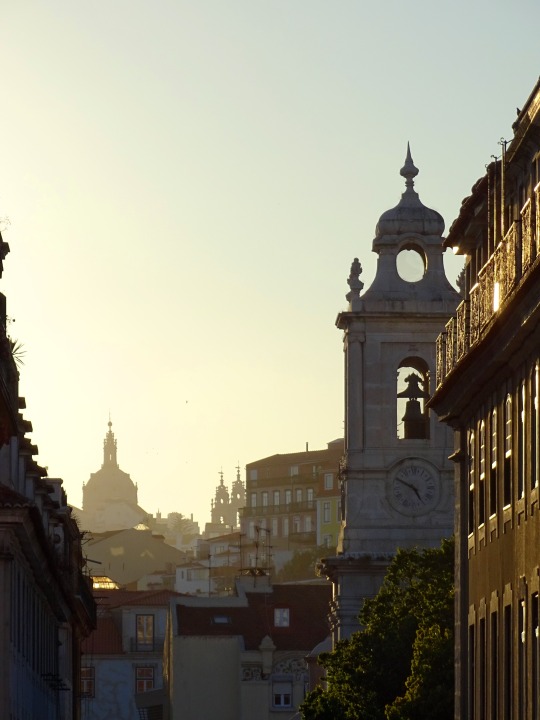

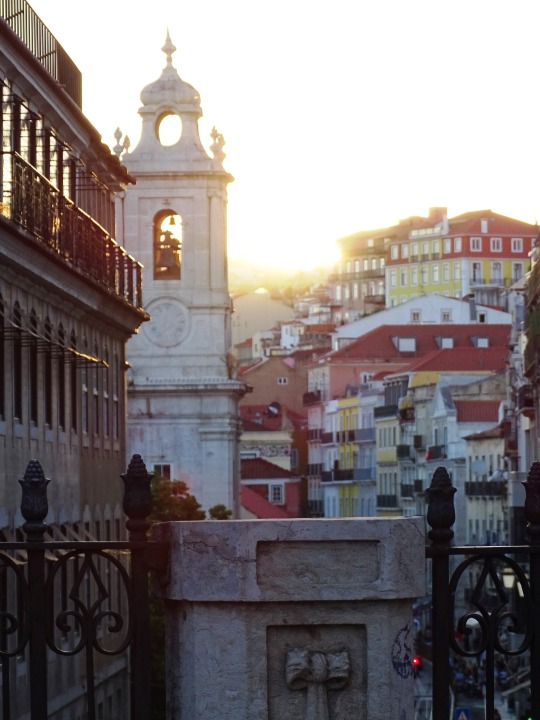


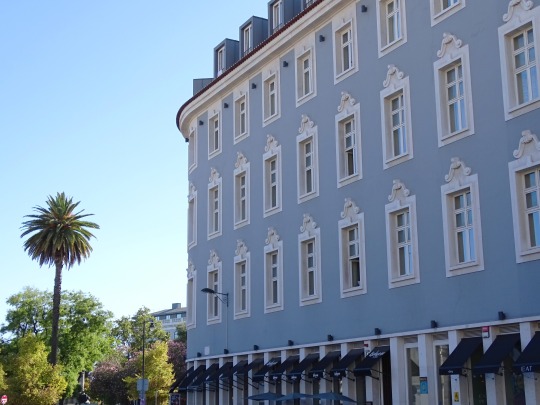

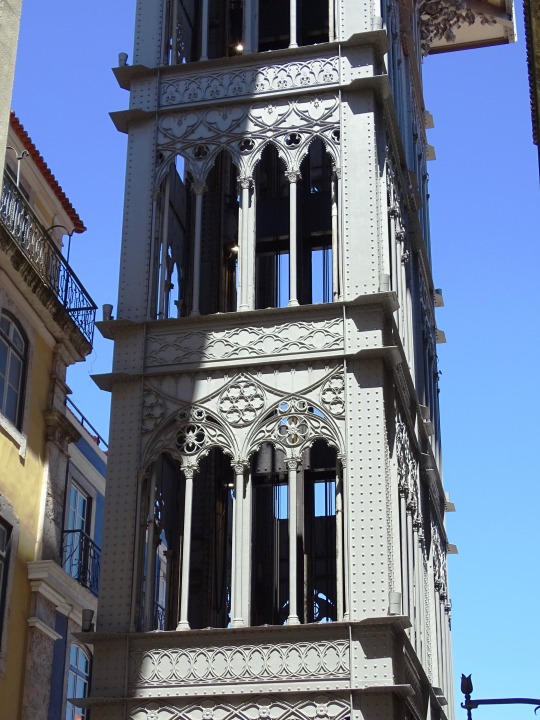
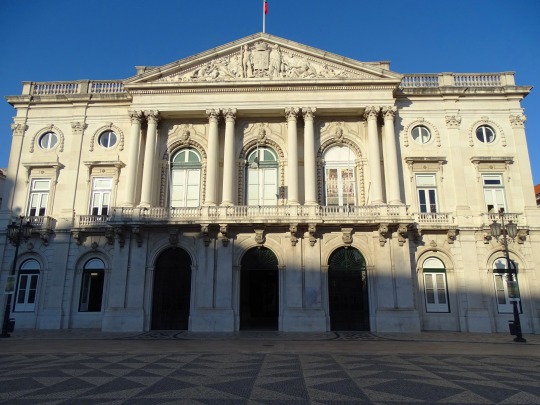
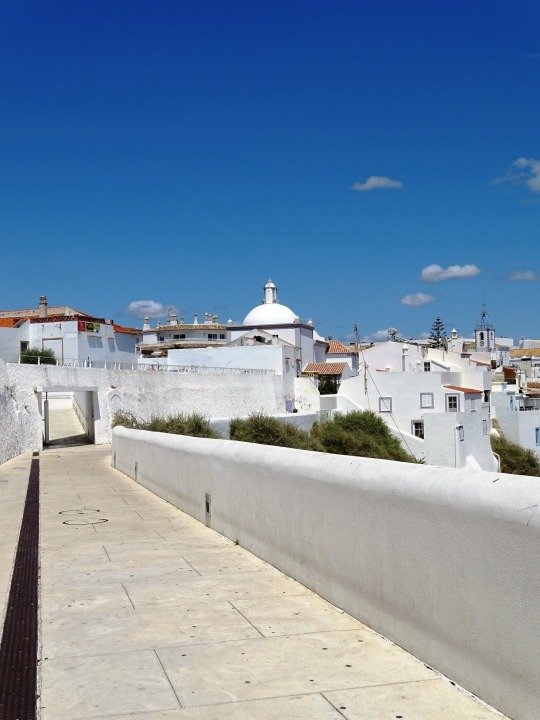
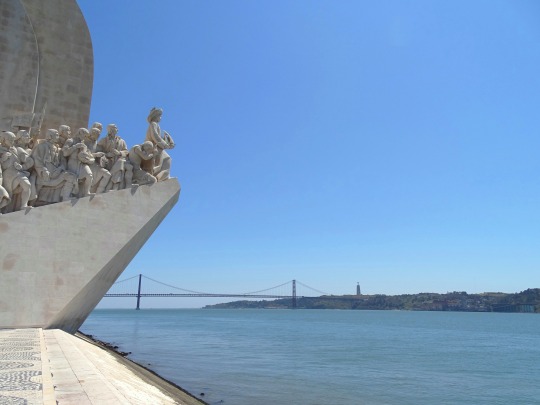
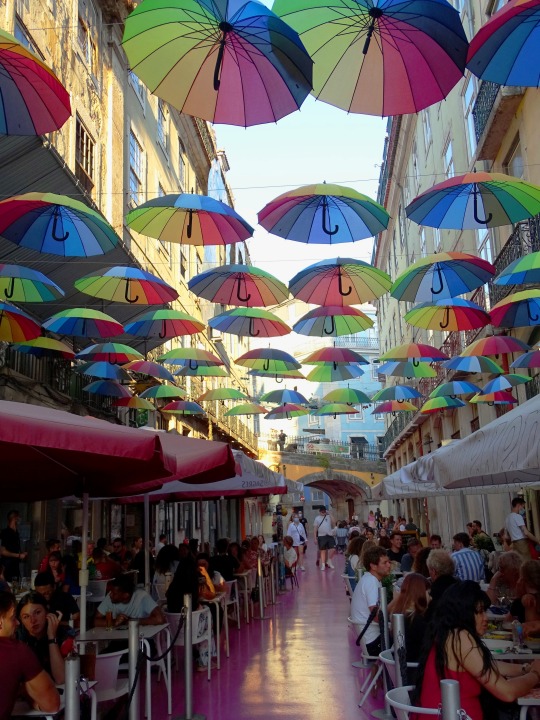
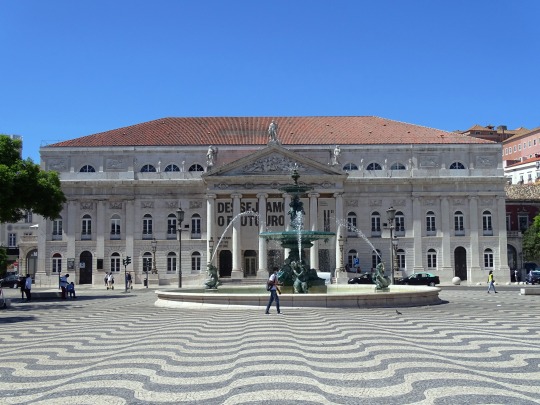
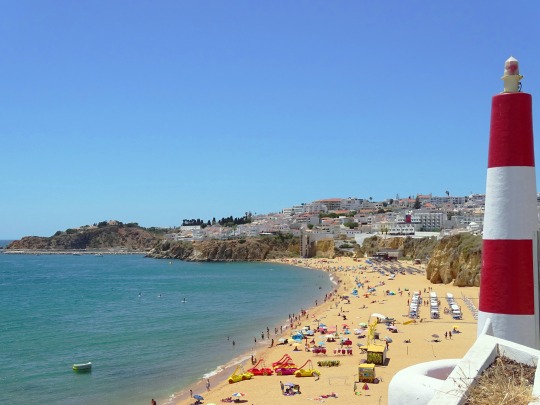
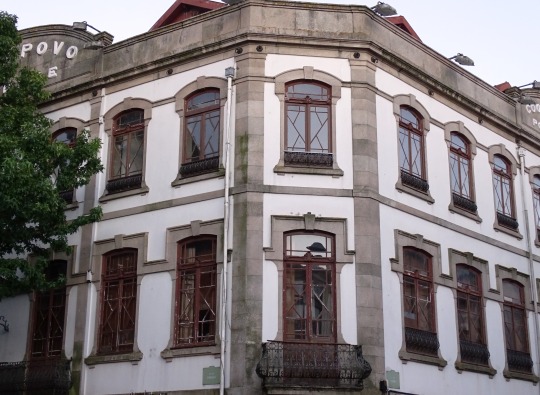
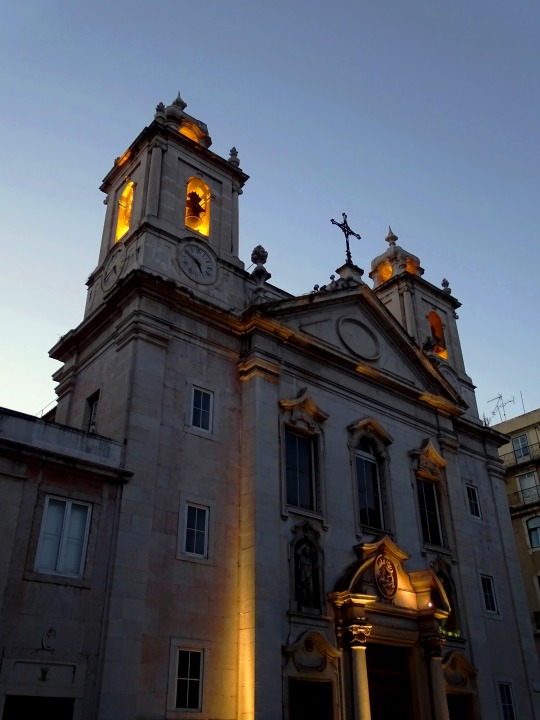
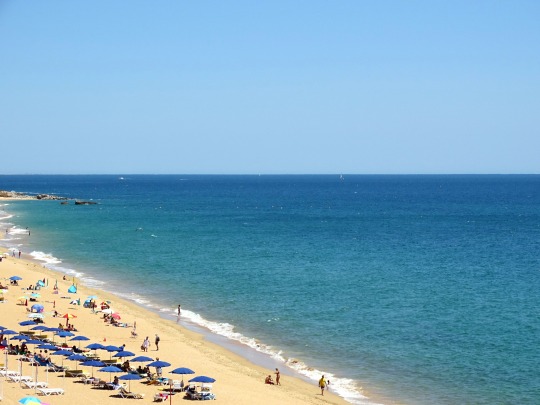
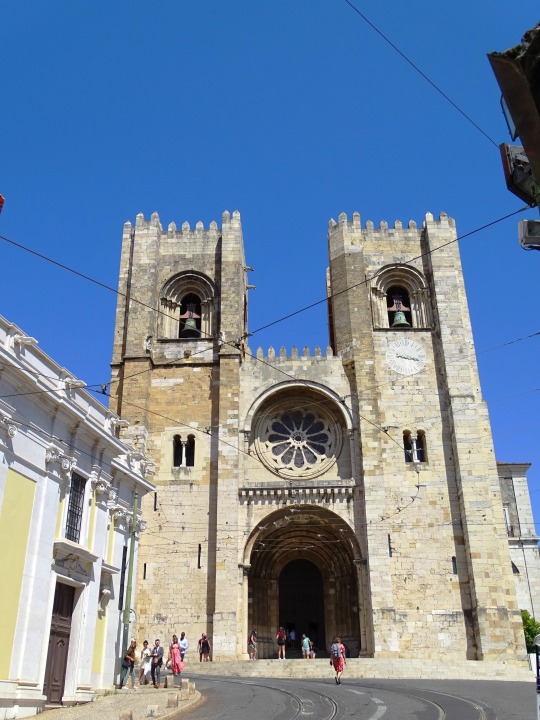
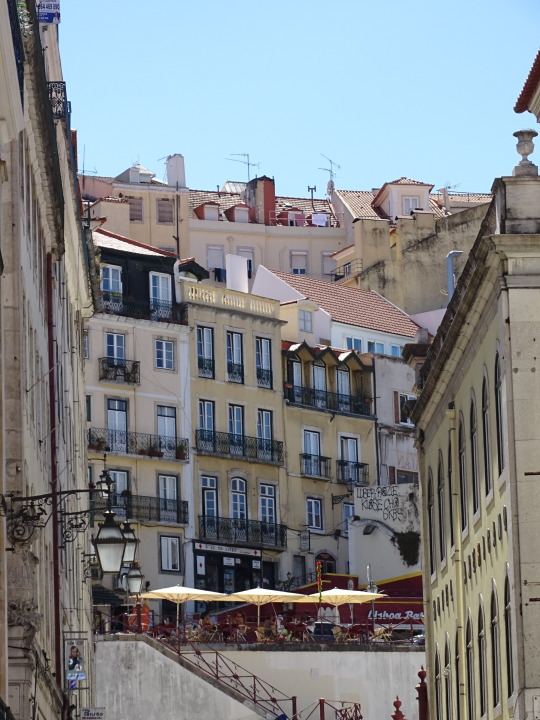


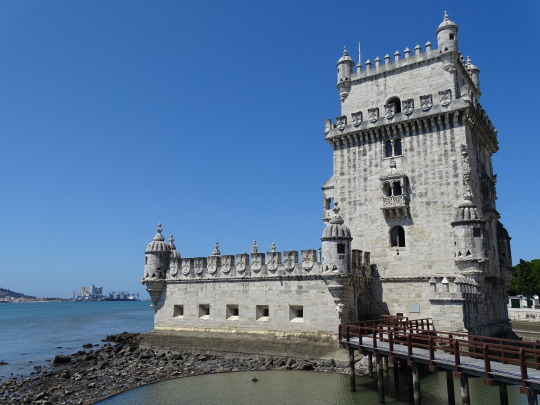

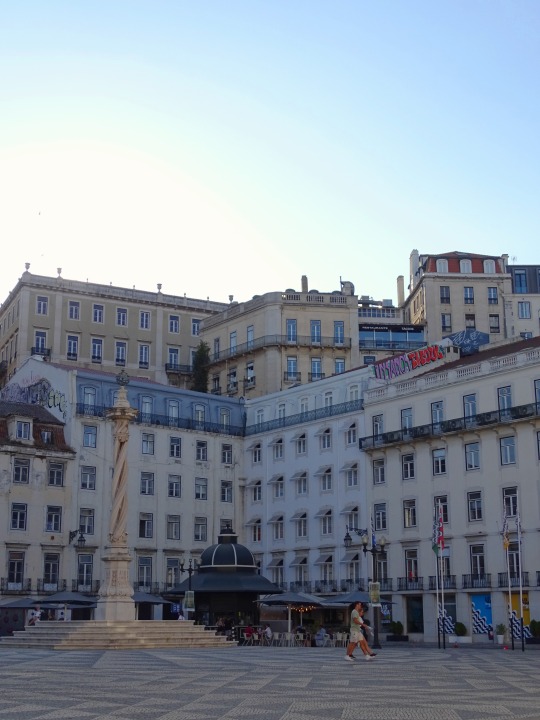
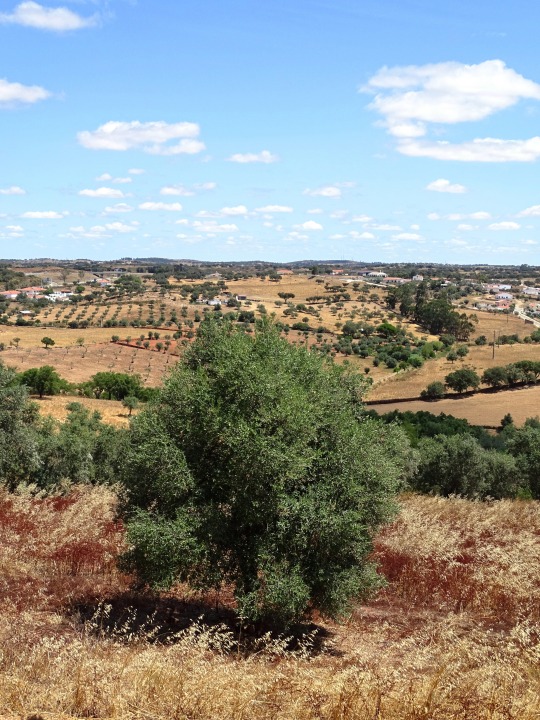
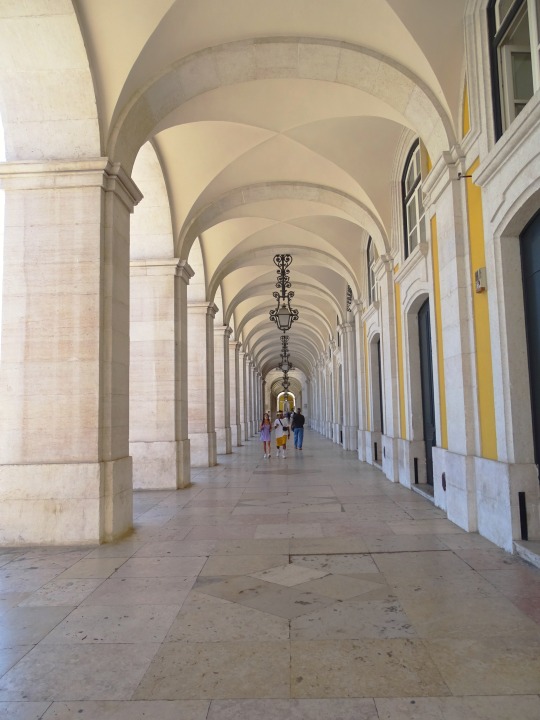
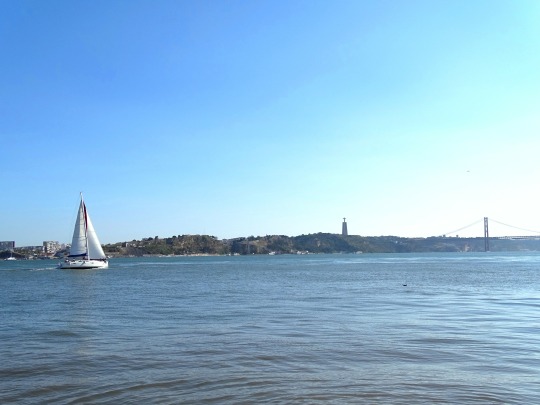
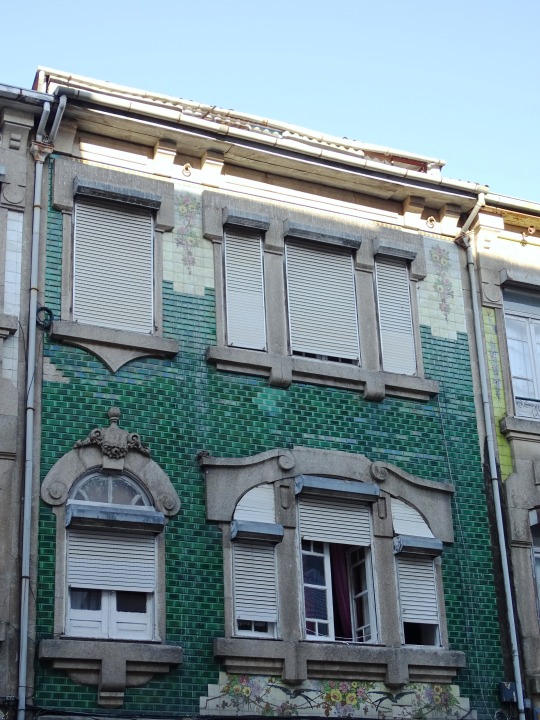
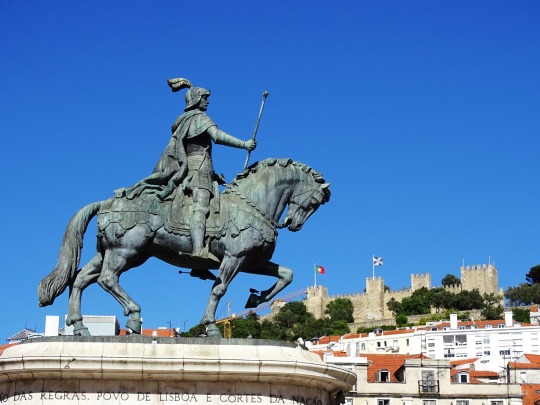

The first attempt at a Portuguese republican revolution broke out in the northern city of Porto on January 31, 1891.
#Portugese history#Portuguese republican revolution#Porto#31 January 1891#anniversary#Lisbon#Lisboa#architecture#cityscape#summer 2021#travel#vacation#Southern Europe#Portugal#Ourique#Albufeira#landscape#original photography#Atlantic Ocean#Algarve#Praça do Comércio#Tajo River#São Jorge Castle#Belém Tower#tourist attraction#landmark
6 notes
·
View notes
Text
Celeste Caeiro: The Lady of the Carnations and the Carnation Revolution
Celeste Caeiro: The Lady of the Carnations Celeste Caeiro, who became a symbol of hope and change during Portugal’s tumultuous history, passed away on April 25, 1974, at the age of 91 in Lisbon. Her act of handing out red carnations to soldiers as they moved to dismantle a 40-year-long right-wing dictatorship, marked a crucial moment in the country’s history. This spontaneous gesture not only…
#1974#April 25#Armed Forces Movement#Carnation Revolution#Celeste Caeiro#change#colonial Africa#dictatorship#hope#Lady of the Carnations#Lisbon#Marcelo Caetano#Portugal history#Portuguese history#red carnations#symbolic gesture
0 notes
Text
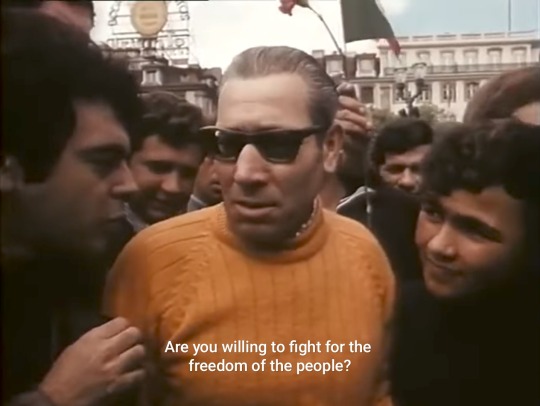

Documentary As Armas e o Povo (1975)
#as armas e o povo#documentary#25 de abril#25 abril 1974#25th april#carnation revolution#portuguese#revolution#freedom#revolução dos cravos#1974#25 abril
296 notes
·
View notes
Note
Acerto miseravi
AH MULEKE!
#the portuguese revolution begins#rotomblr is no longer safe#rotomblr#pokeblogging#pokeblr#pkmn irl#pokemon#rotumblr#pokeblog rp#clover responds
0 notes
Text
Portuguese Women Breaking Barriers in Business: A Revolution of Resilience
In the picturesque streets of Lisbon, where history and modernity blend seamlessly, a quiet revolution is unfolding. It’s not in the grand palaces or ancient monuments that this change is taking place, but in the offices, boardrooms, and startups that are redefining Portugal’s business landscape. At the heart of this transformation are Portuguese women, breaking barriers and reshaping the future…

View On WordPress
0 notes
Text
hello hannah nation, finaly the end of the second to last book! context in the first post, find it through the first tag, have fun!
Book 8 - Portugal and the world, from the Second World War to the start of the 80s - internal options and international context.
Part 2 - Portugal, from Authoritarianism to Democracy
The end of the Second World War was seen as a "victory against fascism", also made Salazar have to, at the very least in apearence, "democratize" the country. The government was dissolved, opposition was allowed to form(the MUD - Movimento de Unidade Democrática), and elections were announced. However, these elections end up being a total farce. The MUD removes their candidacy, and their members are captured and repressed.
Afterwards in the presidential elections the people rally around the candidate Norton de Matos, but he was severely repressed and ended up giving up. The Democratic Oposition fragmented and weakened as time passed, until 1958 with the candidacy of Humberto Delgado, known as the "fearless general", due to his strong position as the one who's not gonna give up from the elections, and for publicly declaring that he would "obviously fire Salazar" once in charge. He created a massive popular mobilization around him, but when the results came he lost with only 25% of the votes. Américo Tomás won and the election system was abolished. But, the results of were put in doubt and the regime lost a lot of credibility, and in the following years the Democratic Oposition only increased in strength.
Economicaly the country was in stagnation. There was a huge lack of infraestructure, farms in the North were too small to mecanize, farms in the South were way too big and wasted, and most farmers lived in total poverty. This led to a lot of emigration, from the rural interior to the coast, but mainly outside of the country, mostly illegaly.
Salazar was forced to rethink his anti-industry policies, and allowed some limited industrialization, but with the sole purpose of replacing imports. The country integrated in the Marshall Plan and elaborated Fomentation Plans, and as such the coastal regions urbanized. This city growth led to a cosmopolitan style of life and aproximation of the country to European standards.
As the old colonial powers decolonized, Portugal remained stubborn, declaring that their colonies were actualy just "overseas provinces". This eventualy led to the colonies revolting, starting the colonial war, which alongside the increased number of ex-colonial nations in the UN, and the hostility of the unitedstatian administration, led to the country becoming even more isolated.
In 1968, Marcello Caetano replaces Salazar, and considering his frequent and periodic oposition to Salazar's ideals while in government gave a sign of hope to the Democratic Oposition. However, in the next elections the União Nacional(party of the Estado Novo) wins 100% of the seats, and increases it's repression on the opposition, showing that Nothing Has Changed. Another topic in which nothing changed was the colonial war, that Marcello Caetano insisted in continuing.
All of this only increased the internal and external oposition to the regime. Internaly: maoists groups, catholics, pastor D. António Ribeiro, the III congress of the Democratic Oposition, the army, specificaly general António de Spínola. Externaly: the Pope Paulo VI, the UN, protests in London during Marcello's visit.
The colonial war led to a lot of unhappiness in the army, who formed the Movimento das Forças Armadas(MFA), who planned a coup. In the 25th of April 1974, the end-of-regime operation begins. After the siege at the Quartel do Carmo, Marcello Caetano surrenders to general Spínola. The Junta de Salvação Nacional is created, that dismanteled the structure of the Estado Novo, and promissed to begin elections one year from then.
Immediatly after the fall of the Estado Novo, known as the "pre-constitutional period", Portugal lived in extreme instability, with the Provisional Governments progressively turning more to the left, with Vasco Gonçalves, associate of the PCP(Portuguese Communist Party) in charge of the Provisional Governments. General Spínola tried to stop this with a coup, but it fails, and in response the government radicalises even more, and creates the Council of the Revolution. The country undergoes multiple nationalizations and massive colectivization, and the African colonies are let go with no concessions. With a lot of pressure from the Socialist Party, the promissed elections take place, on the 25th of April 1975. The far-left loses, but they refuse to leave the government, during a period known as "hot summer", until one final coup on the 25th of November. The new Constitutional Assembly works on elaborating a new constitution, but due to the chaotic and radical conditions they were going through, they signed the MFA-Parties Treaty, that guaranteed the persevation of the revoltionary achievements in the new constitution (such as the nationalizations and the Council of the Revolution). The new constitution enters into effect on the 25th of April 1976.
As time passed, the country underwent multiple constitutional revisions, to democratize the country, and better integrate with the rest of Europe.
#hannah's history lessons#history#portugal#portuguese history#carnation revolution#25th of april#salazar#marcello caetano#antónio de spínola#humberto delgado#vasco gonçalves#norton de matos#américo tomas#partido comunista português#pcp#movimento das forças armadas#estado novo#mfa#união nacional#colonial war#partido socialista#pre-constitutional period
0 notes
Text
"thank you" in portuguese being literally translated as "obligated" will never not be funny to me.
it's like someone was forced to help you and they're grumpy bc of that and you just threw that in their face like "HA! OBLIGATED!"
#i heard that it's bc they used to say “i feel obligated to return your favor” but people cut expressions and words so#and that's why “obrigado” is a gendered word as well 😩 bc it refers to you so the last letter changes according to your pronouns#yes i know this language is ridiculous#we'll fix it tho i promise#“we” in this case means “lusophone enbies”#my future books will be some of the first lusophone books to use gender neutral and neolanguage portuguese#i'll make a revolution ok? shut up#tio morcego tá doidão
1 note
·
View note
Text
Because I'm feeling whimsical,
What the fuck do you mean that's a quilt??? Round 2
All quilts are contest winners from the quilt show Road to California, 2022. You can see these quilts and the other winners from that year here.
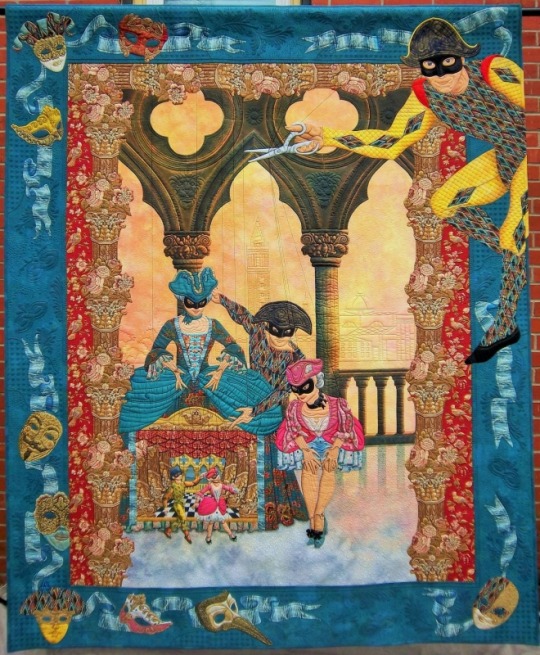
Best of Show Quilt
Title: Harlequinade Maker: Rebecca Prior Quilter: Jackie Brown Design Basis: Maker's Original Design "Harlequinade" is a theatrical quilt filled with visual clues guiding viewers to discover a hidden story. Inspired by Venetian Carnival masks and commedia del'arte characters, the quilt features the antics of Harlequin, the trickster, who has his own ideas about freedom and fun!
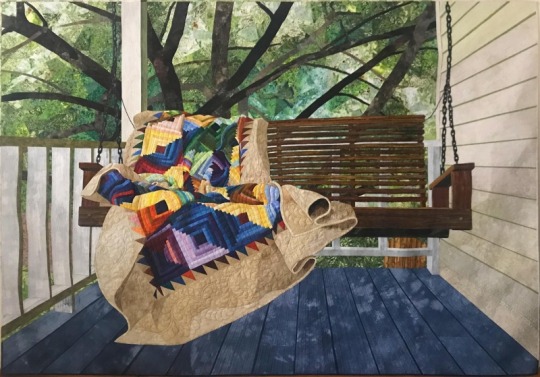
Director's Choice
Title: Welcome Home Maker: David Taylor Quilter: David Taylor Design Basis: Original image by Margo Clabo, used with permission I first saw this image from friend Margo Clabo more than a decade ago. It took years to convince her to let me adapt her photo into a quilt. The image it depicts is especially sentimental for her. The challenge for myself was to create a pieced pictorial background and recreate a traditionally pieced quilt by using my hand appliqué technique. The project size was overwhelming, but I'm thrilled with the finished quilt. So is Margo. Time to exhale.
Note: To be clear, that is not a photo with a quilt in it, that WHOLE THING is a quilt.
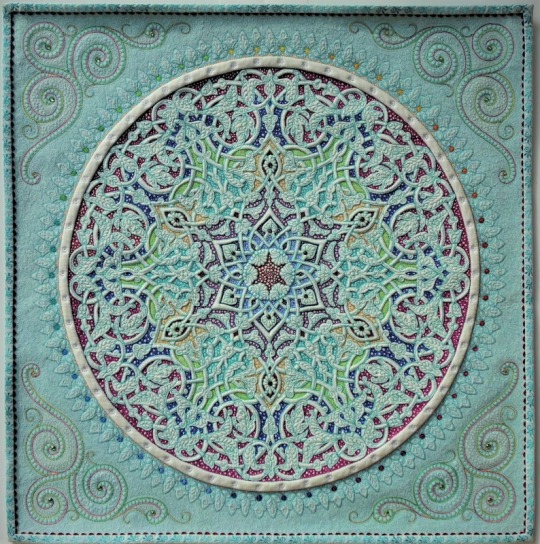
Best Machine Stationary Quilting
Title: Emerald labyrinth Maker: Kumiko Frydl Quilter: Kumiko Frydl Design Basis: Maker's Original Design As a starting point I used an image from the entrance to the EL Barkookeyeh Mosque in Cairo. Thinking of an elegant and intricate garden I added bursts of natural color and filled the area between the large elements of the design with finer ornament inspired by butterflies and plants. I set the circular image in a rectangular frame with a subdued complimentary design of rippled reflective pools.
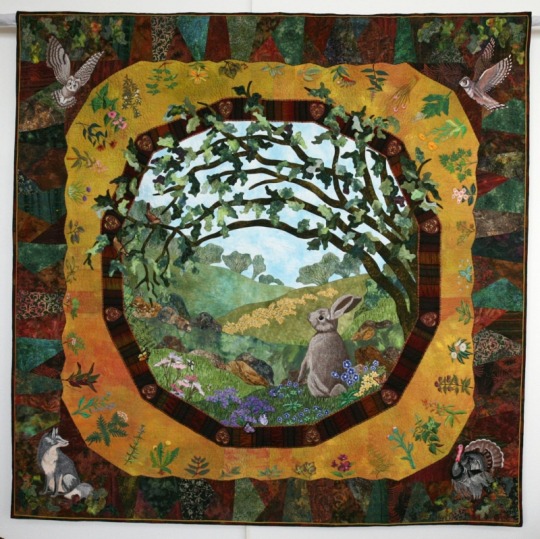
1st Place: Animal
Title: Woodland Wilds Maker: Ann Horton Quilter: Ann Horton Design Basis: Maker's Original Design My morning hikes in the woodland hills of our northern California home inspired this quilt. The rabbits are always alert for danger. This machine appliqued, thread painted and embroidered view through a window is surrounded by wild flowers on hand dyed silk and again surrounded by other wild birds and animals. I love my wilds things in the woods!
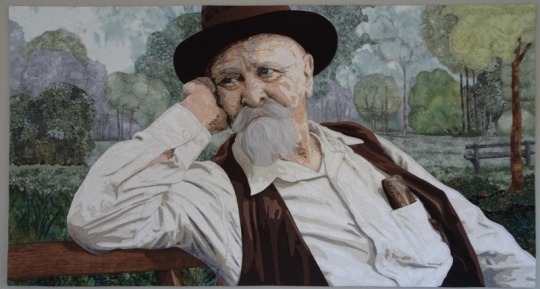
1st Place: Human Image
Title: The Memories That Remain Maker: Lynn Czaban Quilter: Lynn Czaban Design Basis: Library of Congress Photos - LC-USF33-006183MI and LC-USF33-0061 I am fascinated by the human face and our ability to communicate without uttering a single word. The Portuguese word 'saudade' meaning a deep emotional state of nostalgic or profound melancholic longing for something or someone that one cares for and loves. Moreover, it often carries a repressed knowledge that the object of longing might never be had again.

1st Place: Naturescape
Title: Desert In Spring Maker: Andrea Brokenshire Quilter: Andrea Brokenshire Design Basis: Maker's Original Design My Mom and I embarked on an epic travel trip we named our "Thelma and Louise Adventure" In Palm Springs, CA we visited the Living Desert Botanical Garden. This quilt is inspired by one of the photographs I took that spring day of a Prickly Pear Cactus in full bloom. I loved the leathery texture of the cactus leaves (paddles) and the almost translucent citron yellow blossoms.
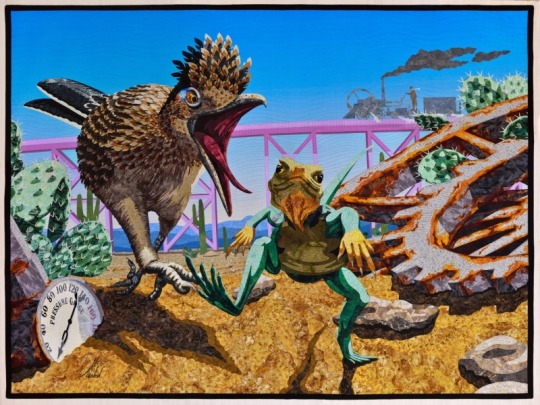
2nd Place: Animal
itle: Not Today Maker: Kestrel Michaud Quilter: Kestrel Michaud Design Basis: Maker's Original Design The chase is on! The Roadrunner is after his next meal, chasing a Common Collared Lizard through a steampunk junkyard. The desert is a favored dumping ground for the detritus of progress, even in a fantasy world. A steam-powered industrial revolution creates iron refuse and pieces of broken machinery have been left to decay in dry desert air. That doesn’t bother these critters. To them, this is home. Will that lizard wind up as dinner? Not today!
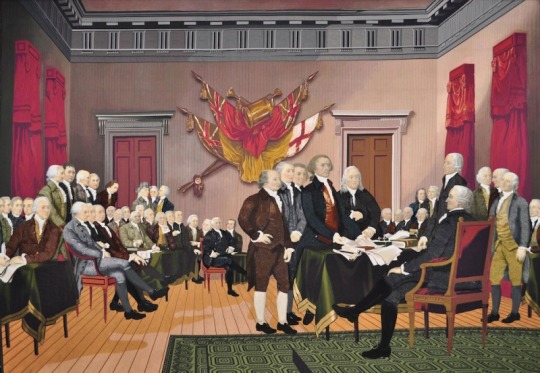
2nd Place: Human Image
Title: Declaration of Independence - Voices of Freedom Maker: Nancy Prince Quilter: Terri Taylor Design Basis: Reproduction of John Trumbull's Painting The quilt is a reproduction of John Trumbull's painting which depicts the moment in history when the first draft of the Declaration of Independence was presented to the Second Continental Congress on June 28, 1776. The quilt front and back were created in Photoshop and custom printed on fabric. Four thousand hours over 4 years was necessary to create the quilt. The back captures the story of the Declaration and its signers.
Note: I'm not at all patriotic. But credit where credit is due. That's a fucking quilt.
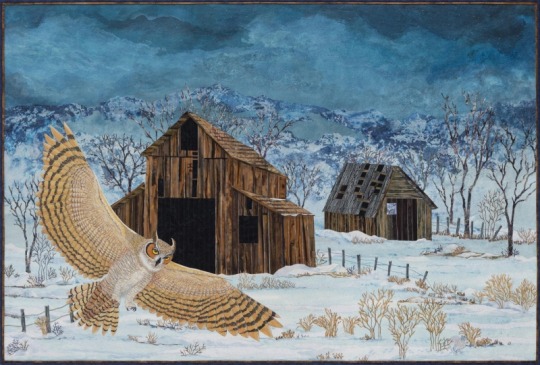
3rd Place: Animal
Title: Midnight Flight Maker: Joanne Baeth Quilter: Joanne Baeth Design Basis: Maker's Original Design Several years ago we had an injured Great Horned Owl roosting in our willow tree during the day. I took several pictures and was inspired to create him in fabric. The background features a painted sky, old buildings, melting snow and a rabbit on the run The foreground is the swooping owl which was constructed by painting and inking each feather and thread painting over fabrics and needle punched wool rovings

3rd Place: Naturescape
Title: Day Into Night Maker: Deb Deaton Quilter: Deb Deaton Design Basis: Maker's Original Design Inspired from photo by Robert Murray with his permission. When the Arizona sun begins to set, the sky comes alive. I saw this photo and knew the splendor of this landscape needed to be captured with fiber! Sky is hand painted. Raw edge applique. Mixed media used: oil pastels, color pencils, inks to enhance the fabrics and create more dimension. Cheesecloth: painted to create spikes of cactus. Tulle used to capture the sunrays. Machine quilted.
#quilting#quiltblr#fiber crafts#fabric art#fiber art#fibercraft#textiles#quilt art#quilt making#quilts#textile art#fibre arts#nature#nature art
10K notes
·
View notes
Text

My new Portuguese graphic novel, a noir story illustrated by Filipe Duarte and set in a dystopic Portugal where the Carnation Revolution failed and the dictatorship is still in effect, was published last March. Check out a couple pages below and follow the link HERE to know more!



#comics#making comics#breaking into comics#comic books#indie comics#portuguese writing#portuguese comics#carnation revolution#filipe duarte
1 note
·
View note